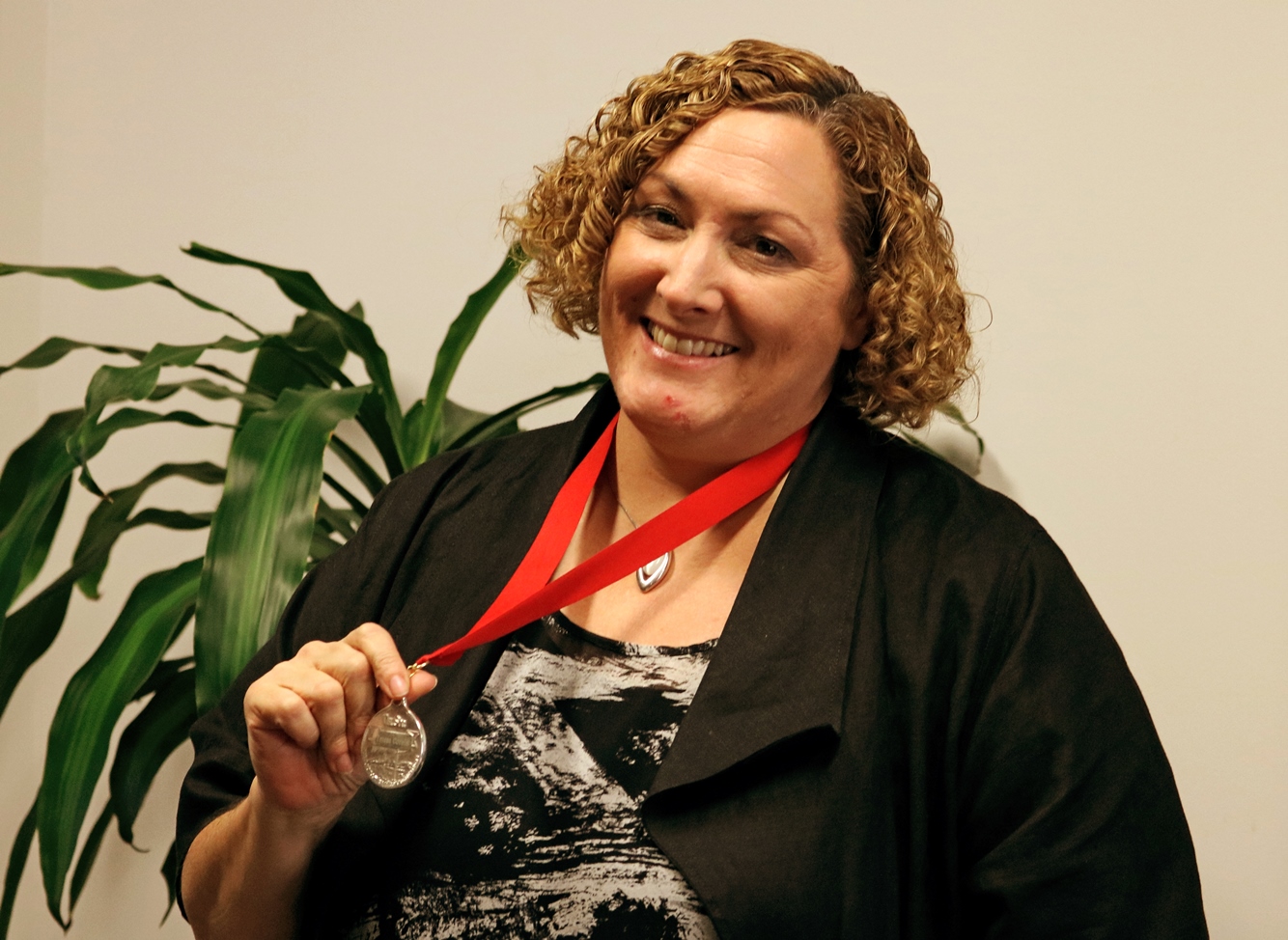Hot Issues
Welcome to the latest current affairs that impact communications consumers.
Sign up for ACCAN's weekly newsletter to have these news items sent to your email address each week.
[ List view | Detailed view ]
- Details
It’s only six weeks til entries close for the Telstra-TJA Christopher Newell Prize for Telecommunications and Disability.
Read more: Telstra-TJA Christopher Newell Prize: Entries close 15 Jan 2010
Write comment (0 Comments)- Details
The Australian Communications Consumer Action Network (ACCAN) has called for new rules that require consumers to give their consent before receiving any kind of mobile premium service.
Read more: ACCAN supports default barring of MPS
Write comment (0 Comments)- Details
A new fact sheet "Mobile premium services - Information for consumers" has been developed jointly by the Australian Communications and Media Authority and the Australian Competition and Consumer Commission. ---
Read more: Mobile Premium Services - information for consumers
Write comment (0 Comments)- Details
 Last week, ACCAN's Disability Policy Advisor, Wayne Hawkins, presented at the NDIS New World Conference 2015 in Brisbane. The theme for the Conference was: Disability in the 21st century.
Last week, ACCAN's Disability Policy Advisor, Wayne Hawkins, presented at the NDIS New World Conference 2015 in Brisbane. The theme for the Conference was: Disability in the 21st century.
The event featured speakers from a range of organisations including Apple, National Disability Services, Ernst and Young and the National Disability Insurance Agency.
Wayne sat on the panel of the Universal Accessibility session, facilitated by Sean Fitzgerald, Director C3 Solutions. Other panellists included James Thurston from G3ictr, Daniel Hubbell from Microsoft and Dr Scott Hollier from Media Access Australia.
Read more: Why is accessible ICT important?
Write comment (0 Comments)- Details
 All across Australia Schoolies celebrations are about to begin for many year 12 students. While travelling for Schoolies, or celebrating at parties, young people will undoubtedly have their smartphones with them along the way.
All across Australia Schoolies celebrations are about to begin for many year 12 students. While travelling for Schoolies, or celebrating at parties, young people will undoubtedly have their smartphones with them along the way.
Below we've put together some tips for young people to ensure they use their smartphones safely.
Avoid risky behaviours
What happens at Schoolies doesn't always stay at Schoolies - especially if it's recorded in an image or video on a smartphone.
Read more: Schoolies, sexting and smartphone safety
Write comment (0 Comments)- Details

In her speech of thanks, Teresa stressed the importance of addressing consumer interests in the marketplace and noted that the best outcomes were achieved when consumers and industry worked together constructively.
Read more: ACCAN CEO recognised with Charles Todd Medal
Write comment (0 Comments)- Details
 Today on the International Day of People with Disability Vision Australia has launched the Document Accessibility Toolbar (DAT) – a tool that makes it quick and easy to create accessible documents in Microsoft Word.
Today on the International Day of People with Disability Vision Australia has launched the Document Accessibility Toolbar (DAT) – a tool that makes it quick and easy to create accessible documents in Microsoft Word.
With funding under the ACCAN Grants Scheme, the DAT was created by accessibility experts from Vision Australia's Digital Access consultancy. The Toolbar adds a simple menu to Microsoft Word with a range of functions to optimise and check a document for accessibility. This means that for Word users creating documents and trying to make them accessible for people with disabilities, a set of dedicated functions will be available in a centralised location to make the process easy. The tool is easy to download and is made to be used by people with limited experience with accessibility.
Read more: Introducing the Document Accessibility Toolbar
Write comment (0 Comments)- Details
 The holidays are a time to celebrate and take a break from work. For some this means visiting family and friends, for others it means getting comfortable on the lounge and binge watching their favourite TV shows.
The holidays are a time to celebrate and take a break from work. For some this means visiting family and friends, for others it means getting comfortable on the lounge and binge watching their favourite TV shows.
No matter which streaming service you subscribe to, there are some things you should be aware of before you watch multiple seasons of your favourite shows over the holidays.
Data usage
Depending on the picture quality, streaming services are likely to take a big chunk out of your monthly download limit. Streaming in high definition (HD) can use up to 3GB of data per hour. Standard definition (SD) streaming will use less data, however, the picture quality will not be as good as HD content. Check with your chosen streaming service to see how much data you will use streaming content in HD and SD.
Read more: Tips for online streaming over the holidays
Write comment (0 Comments)- Details
[Watch on Youtube - Video will autoplay -
please note this video does not contain sound as it has
been produced for the Australian Deaf community]
Imagine watching an emergency broadcast when you are unable to understand what is being said. If you can't understand what is happening, then you will not have access to important, possibly life saving information.
This is a situation that Deaf Australians who are Auslan users may experience when watching emergency broadcasts when an Auslan interpreter, who is present at the emergency press conference, is cut out of the broadcast. Auslan is the first and often preferred language for many Deaf Australians. It is estimated that there are more than 10,000 Australians who use Auslan as their preferred1 2 language.
Read more: Emergency broadcasts and Auslan interpreters
Write comment (0 Comments)- Details
 We have reached a point in modern society where we seem to go online for everything. To organise meals, book transport, pay bills, earn an income, vote, communicate and of course, obtain all sorts of goods and entertainment.
We have reached a point in modern society where we seem to go online for everything. To organise meals, book transport, pay bills, earn an income, vote, communicate and of course, obtain all sorts of goods and entertainment.
Yet, there are still some people who can't or won't go online. For some, a proxy internet user takes their place: someone who goes online on behalf of others. Usually an informal relationship, proxy users are an overlooked group of consumers. It is easy to assume that proxy users undertake practical internet activities, such as shopping or checking timetables, on behalf of others, but it could be that they undertake a much wider variety of activities altogether.
Read more: Going online on behalf of others
Write comment (0 Comments)- Details
 A recent Disability Discrimination complaint lodged with the Australian Human Rights Commission against the former Communications Minister, now Prime Minister, Malcolm Turnbull was resolved last month with the Office of the Prime Minister committing to ensure all its future videos will now be accurately captioned prior to posting to the web.
A recent Disability Discrimination complaint lodged with the Australian Human Rights Commission against the former Communications Minister, now Prime Minister, Malcolm Turnbull was resolved last month with the Office of the Prime Minister committing to ensure all its future videos will now be accurately captioned prior to posting to the web.
The conciliated outcome with the Prime Minister's Office ensures that people who rely on captions will now have the same real-time access to information as the rest of the community.
Read more: Great outcome for consumers who rely on captions
Write comment (0 Comments)- Details
 Dr Paul Paterson is the Chief Economist of the Bureau of Communications Research (BCR), an independent economic and statistical research unit within the Department of Communications and the Arts. We interviewed Dr Paterson to get some insights into his work in the communications industry and the scope of the BCR.
Dr Paul Paterson is the Chief Economist of the Bureau of Communications Research (BCR), an independent economic and statistical research unit within the Department of Communications and the Arts. We interviewed Dr Paterson to get some insights into his work in the communications industry and the scope of the BCR.
Dr Paterson, you have worked as an economist in the communications sector for over 20 years, what would you say is the biggest development in that time?
Yes, a long time with huge changes. In this time I have worked as an economic consultant, a regulator and as a senior executive in both the public and private sectors, in Australia and overseas. During this time I've seen many impressive developments in the comms sector, including the:
Read more: BCR Chief Economist, Dr Paul Paterson
Write comment (0 Comments)